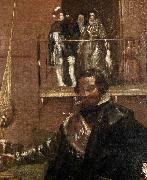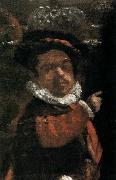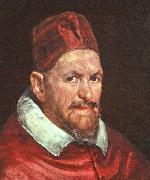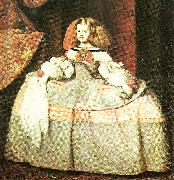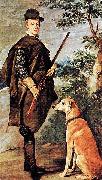Diego Velazquez Huiler la Reproduction de TableauAll Diego Velazquez Oil PaintingsSpanish Baroque Era Painter, 1599-1660 |
|||

|
|||
|
|
|||
|
||||||||||||
| Diego Velazquez Spanish Baroque Era Painter, 1599-1660 |
||||||||||||
|
|
||||||||||||
| ID de tableau:: 62310 Prince Baltasar Carlos with the Count Prince Baltasar Carlos with the Count Duke of Olivares at the Royal Mews (detail) c. 1636 Oil on canvas Collection of the Duke of Westminster, London The Count-Duke of Olivares stands in the middle ground to the right of the picture, with his master-at-arms; figures on the balcony above him include Philip IV, Queen Isabel and several courtiers who cannot be identified for certain Duke of Olivares at the Royal Mews (detail) c. 1636 Oil on canvas Collection of the Duke of Westminster, London The Count-Duke of Olivares stands in the middle ground to the right of the picture, with his master-at-arms; figures on the balcony above him include Philip IV, Queen Isabel and several courtiers who cannot be identified for certain |
||||||||||||
|
|
||||||||||||
| ID de tableau:: 62311 Prince Baltasar Carlos with the Count Prince Baltasar Carlos with the Count Duke of Olivares at the Royal Mews (detail) c. 1636 Oil on canvas Collection of the Duke of Westminster, London The dwarf in the painting is probably Don Diego de Acedo, called El Primo Duke of Olivares at the Royal Mews (detail) c. 1636 Oil on canvas Collection of the Duke of Westminster, London The dwarf in the painting is probably Don Diego de Acedo, called El Primo |
||||||||||||
|
|
||||||||||||
| ID de tableau:: 62312 Pope Innocent X c Pope Innocent X c 49,2 x 41,3 cm National Gallery of Art, Washington Perhaps the preeminent Spanish artist of the seventeenth century, Vel?zquez was, from 1623 on, court painter to Philip IV in Madrid. In 1650 Vel?zquez was sent to Italy to buy paintings for one of his monarch's palaces; while in Rome the artist was commissioned to portray the Pope. The final version (now in the Galleria Doria, Rome) was preceded by several small sketches. This canvas was executed probably by someone in his circle. Vel?zquez was given the unenviable task of depicting the most powerful and, according to contemporaries, the ugliest man in Rome. The artist was successful, for when the Pontiff saw the portrait he is said to have remarked, "troppo vero" (all too true!). 49,2 x 41,3 cm National Gallery of Art, Washington Perhaps the preeminent Spanish artist of the seventeenth century, Vel?zquez was, from 1623 on, court painter to Philip IV in Madrid. In 1650 Vel?zquez was sent to Italy to buy paintings for one of his monarch's palaces; while in Rome the artist was commissioned to portray the Pope. The final version (now in the Galleria Doria, Rome) was preceded by several small sketches. This canvas was executed probably by someone in his circle. Vel?zquez was given the unenviable task of depicting the most powerful and, according to contemporaries, the ugliest man in Rome. The artist was successful, for when the Pontiff saw the portrait he is said to have remarked, "troppo vero" (all too true!). |
||||||||||||
|
|
||||||||||||
| ID de tableau:: 64293 the infanta maria teresa, c the infanta maria teresa, c 1659-60 madrid. prado 1659-60 madrid. prado |
||||||||||||
|
|
||||||||||||
| ID de tableau:: 66316 El Cardenal Infante Fernando de Austria, vencedor de Nordlingen El Cardenal Infante Fernando de Austria, vencedor de Nordlingen 1632-1636 191 x 107 cm 1632-1636 191 x 107 cm |
||||||||||||
|
|
||||||||||||
| Artiste précédent Artiste prochain | ||||||||||||
|
|
||||||||||||
|
Diego Velazquez Spanish Baroque Era Painter, 1599-1660 |
||||||||||||
|
|
||||||||||||
|
CONTACTER DES Etats-Unis |





